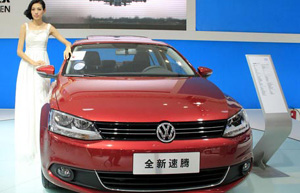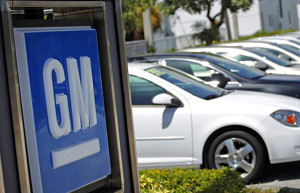This has been shown to be true in prior cases. Last year, when the government initiated antitrust investigations of foreign milk powder companies, several brands were spared penalties because they were cooperative, while six companies were fined for what some analysts called a "bad attitude" toward the investigation.
Twelve auto parts companies also are being scrutinized.
The current practice is for foreign brands to provide parts to authorized retail stores, and consumers have to pay top prices to get their cars-especially imported cars-repaired or serviced in these stores. A 200 yuan part can be sold for as much as 5,000 yuan to a customer, according to Zeng Zhiling, managing director of LMC automotive consulting (Shanghai) Co, a provider of automotive industry forecasts and intelligence.
An employee of a foreign car dealership who asked for anonymity to avoid losing his job says the dealership is required to procure a certain number of parts every year from the auto-maker, but not all of them are used if repairs are fewer than anticipated. As a result, those parts are sold of to other companies at a much cheaper price, which the employee says is strictly prohibited by the foreign brands, "but it happens".
Domestic parts manufacturers are under more competitive pressure than automakers.
In 2006, China reduced the import tariff on parts to 10 percent to comply with World Trade Organization regulations, and the Chinese parts industry suddenly had to con-front strong foreign rivals.
"The domestic brands haven't gained consumers' trust, and foreign parts are purchased through authorized sales," Shi from the automobile association says.
Pang Qinghua, president of Pangda Automobile Trade Co, says cutting prices is not the solution for the monopolies in parts sales. Instead, the exclusive authorized sales system in China needs to change, Pang says. Pangda is among the top three automobile trading companies in China, and it sells multiple brands including most foreign ones.
"Dealers have very little say in the pricing process," Pang says. "It should be up to auto dealers to decide the parts and maintenance prices, but in reality automakers make all the decisions for us and even set minimum prices for some models," he says.
The Chinese pricing system dates back to 20 years, when China started to introduce the first foreign car brands. To help those companies develop a distribution system, the Chinese government set up a guideline on auto brands management. The guideline laid the foundation for the current authorized sales system.
|
 |
 |
| China launches defect probe into VW New Sagitar | GM China venture contacted by regulators |
